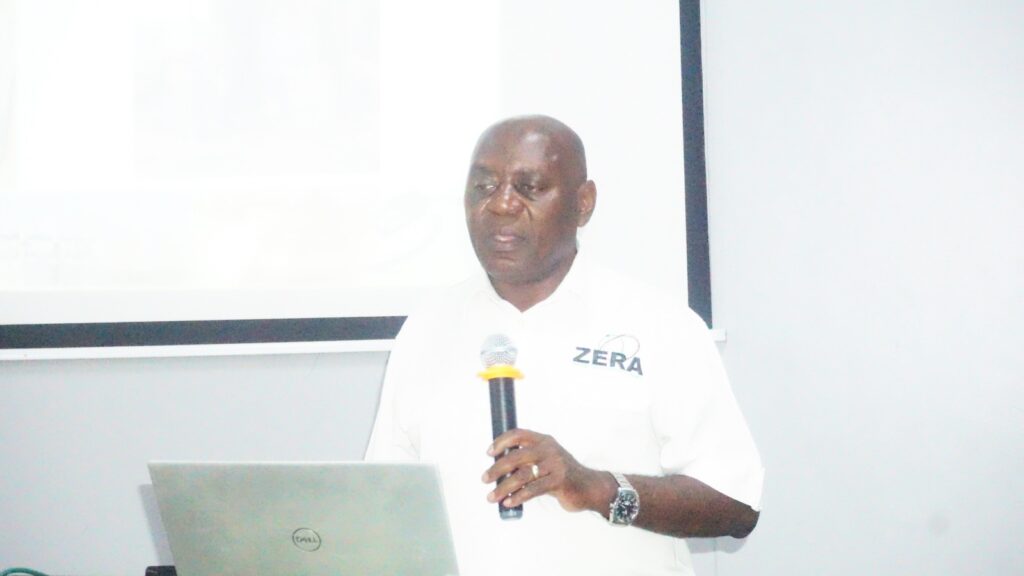By Dumisani Ndlovu
Zimbabwe has experienced a remarkable increase in the use of liquefied petroleum gas (LPG) as residents seek alternatives in response to ongoing electricity shortages. This transition to LPG underscores the potential of alternative energy sources to transform communities while meeting urgent energy needs and enhancing environmental sustainability.
Engineer Andrew Guri, head of the petroleum department at the Zimbabwe Energy Regulatory Authority (ZERA), highlighted that Zimbabwe now ranks first in Southern Africa for LPG consumption, attributing this trend to the growing acceptance of LPG as a modern, safe, and environmentally friendly fuel. Guri made these remarks during the ZERA Media Engagement / Energy Journalism Workshop at the Holiday Inn in Bulawayo on Wednesday.
“Zimbabwe has broken all records in Southern Africa,” Guri stated during a media briefing in Bulawayo on Wednesday. “There’s no other country where people have become so comfortable with LPG than Zimbabwe.”
Guri remarked on the significant progress made, noting that the country’s LPG consumption has surged from under 1 kilogram per person per year in 2012 to approximately 4.5 kilograms today. Unlike neighboring nations, where LPG use remains limited, Zimbabweans have embraced it confidently.
“In Zambia and Malawi, they are always coming to us, asking, ‘What have you done in Zimbabwe to make people so comfortable with LPG?’” Guri said. “Elsewhere, people remain hesitant, but here, we see it on street corners and in homes.”
The rise in LPG usage is helping to alleviate pressure on Zimbabwe’s electricity grid, which Guri considers crucial.
“Using LPG helps relieve demand for electricity, freeing up power for industries where it’s needed most,” he explained. With frequent power cuts affecting households, LPG has become a practical solution for cooking and heating, easing the burden on the national power supply,”he added.
Guri described the logistics of delivering LPG to Zimbabwe, stating, “We get our gas offshore from traders. It arrives by road, goes into storage, and then is distributed to LPG filling plants across the country.” This supply chain ensures that Zimbabweans have convenient access to LPG from local retailers.
In addition to convenience, the engineer said the move to LPG offers significant health and environmental advantages.
“LPG is a modern fuel; it doesn’t corrode or produce soot, unlike other toxic substances,” Guri stressed. As communities in Africa seek alternatives to wood and charcoal—fuels that contribute to deforestation and air pollution—LPG is becoming increasingly valuable.
“Central and East Africa face severe environmental issues, such as desertification and deforestation, from the extensive use of charcoal. LPG offers a sustainable and cleaner alternative,” he stated.
While the rapid shift to LPG presents challenges, especially regarding safety, Guri reported that Zimbabwe maintains a relatively low accident rate compared to South Africa. However, he acknowledged the importance of ongoing caution as usage continues to rise.
“We are pleased that our accident rates with LPG are lower than those of South Africa, but there is still work to be done to ensure safety standards are maintained,” he said.
The increased reliance on LPG has prompted the Zimbabwean government to promote safety education. “Last year, Zimbabwe used 66 million kilograms of LPG, and we’re projecting usage will reach 70 million kilograms this year, if not more,” Guri stated. “However, with LPG being sold on street corners and in neighborhoods, incidents can happen. Our goal is to maintain safety as consumption continues to rise.”
Guri underscored that LPG aligns with both domestic energy needs and international environmental standards.
“Even Europe is moving toward LPG for its efficiency and accessibility,” he noted, highlighting Zimbabwe’s position as a model for sustainable fuel adoption in the region. As the country leads Southern Africa in this clean energy transition, Guri believes the embrace of LPG marks a promising step toward sustainable development. “LPG is a fuel of the future,” he concluded.

Engineer Andrew Guri, Zimbabwe Energy Regulatory Authority (ZERA), head of the petroleum department

